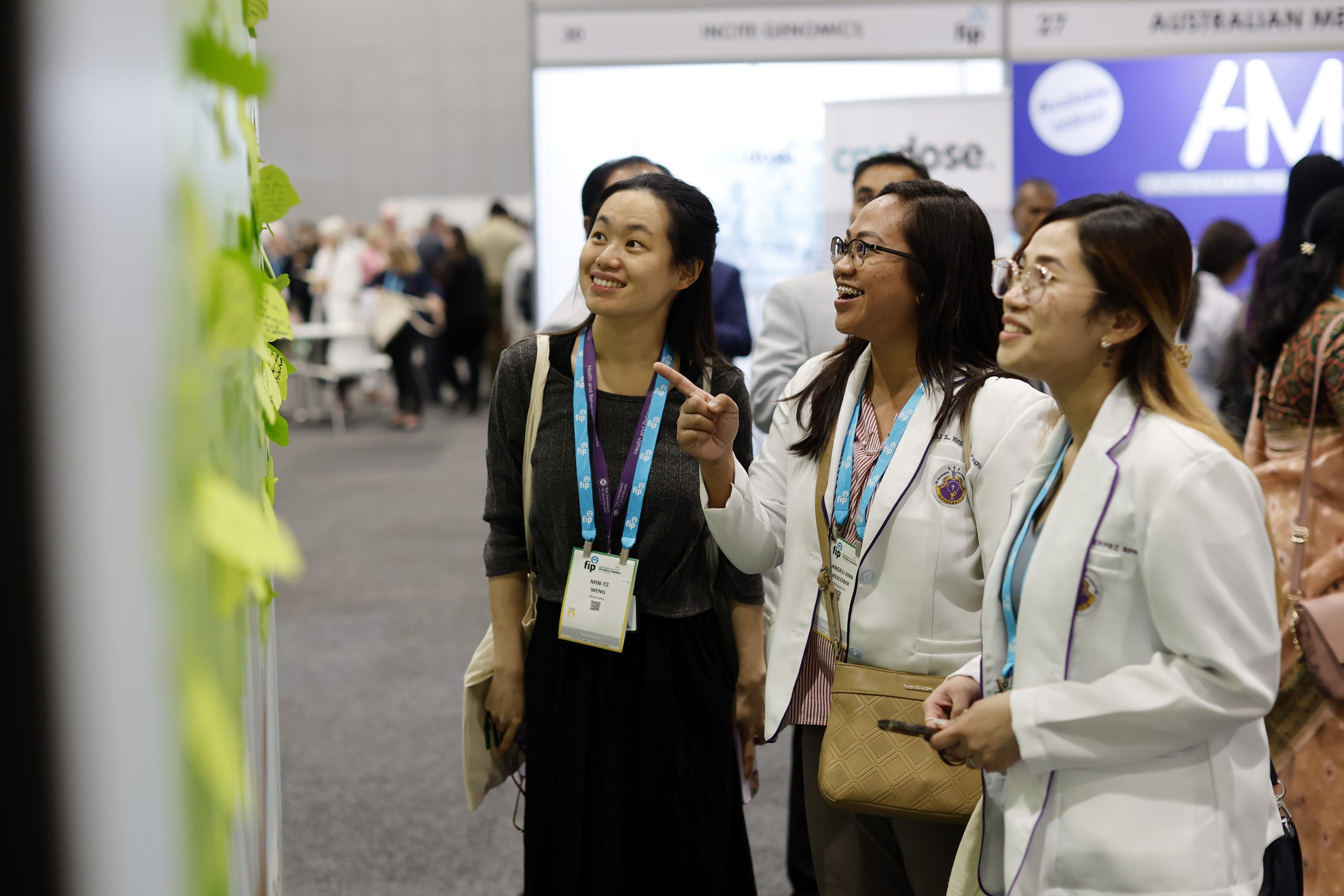If there’s one area of the events industry that is almost always best left to the experts, it’s the audio-visual element.
Complex, computer-controlled, electronic AV systems and the task of choosing from the endless permutations of sound, colours and lighting those machines can create are the last things a busy events organiser wants to add to their list of responsibilities. At the same time, event organisers who lack a clear idea of what they want or – and at the end of the day it amounts to the same thing – those who lack an understanding of what is possible, may miss the opportunity to deliver the excitement and buzz that could take their event to the next level.
So how do stressed planners get the most from their audio-visual crews? How should they find them and what can they expect?
Mix spoke to some key AV technicians who have years of experience in the events field for their tips.
Responses by Andrew Maccoll, head of technology, Staging Connections Group and Patrick O’Hara, event producer, Offsite Connections.

How much technical knowledge should event organisers have to demand the best from their AV teams and how much is it about imagination and ideas?
Andrew Maccoll: Well, in my opinion event organisers really need to know what is possible with AV without getting too bogged down with the how of it. So, knowing about new ideas and trends is far more important than knowing which buttons do what. But this doesn’t mean that EOs can’t be technically creative. Bringing new ideas or technology to an event experience is one of the key jobs of producers.
Patrick O’Hara: Imagination and ideas are always the most important aspect of any successful event. You need to work with your AV team to complement the ideas you have, but you do need to rely on their expertise and experience to find the best solutions. When we receive a brief, our AV teams are often the first people we meet with, to come up with the basic technical framework and how to approach the event.
I still think however, that it’s important to have a certain amount of technical knowledge when producing large events or business sessions. You cannot rely solely on your technical teams, because sometimes AV suppliers can focus too much on technical perfection, and not enough on achieving the events objectives, like budget, message and guest experience. You need equal consideration of both to produce a great looking, great sounding show.
How much does good AV depend on the technology and how much on the skills of those using it?
Maccoll: The answer is of course that both are important. Using old or inadequate gear is often a recipe for a poor event experience. But given the choice between having great people with average equipment or brand new equipment in the wrong hands I have no doubt which is more likely to deliver the right result. There is no substitute for having well trained people with the right skills and attitude.
O’Hara: I think that the operation is pivotal. It doesn’t matter how cutting edge the technology you are employing, if it’s not being operated properly, or not used to its full advantage, then it’s wasted budget. This is the reason why professional event organizers, such as Offsite Connections, place such importance on trustworthy suppliers with good crews and technical directors. We use the same companies consistently, with the same technical directors. Often, if you don’t have the budget for top-of-the-range equipment, you can still achieve great results with lower range equipment if it’s used properly.
Should organisers think in terms of a special AV brief to go to the AV team or should they trust the venue or event management company to do that for them?
Maccoll: In general, organisers are best served by thinking in terms of required outcomes rather than getting too tied up with technical details. If you are dealing with trusted suppliers and partners, tell them in as much detail as possible what you want to achieve and then let them work out how it will be best done within your budget. This will apply to a lot of aspects of events but it is particularly important to the more complex areas like AV.
O’Hara: I think that organisers should definitely put some thought into what they would like to see, from an AV point-of-view. However, if they have engaged an event management company, convey these ideas to your event manager and have them coordinate with the AV supplier to ensure clear communication channels and accountability. Relying on the venue to fully understand your technical requirements is not the best option, considering very few venue sales and event management staff have technical know-how.
I believe you should simply brief your event management team on what you like to see in broad terms including budget parameters and let them come back to you with initial systems design.? Then you go from there, working toward achieving desired looks, outcomes, programmes and budget objectives.
How can an event planner be sure of their AV team’s reputation? are there recognised Certifications or is it best to look at their testimonials?
Maccoll: Event organisers are almost always putting the reputation of their employer on show either in front of customers, staff, media or even the public. And so trust is a key area in selecting the people who you choose to help deliver events. There are certainly industry associations which can help here and there are also technical qualifications which a good AV crew will have attained. But in the end it’s all about trust. Deal with people you know or those to whom you have been reliably recommended. A flashy website is no substitute for talking to other event organisers who have worked with your prospective AV team.
O’Hara: Testimonials and references are always good. Always check how long they have been in business, and determine if they have their own equipment or are sub-hiring it from another company. Generally speaking for basic, low budget AV support, companies that have in-venue operations can usually be relied upon because the venue also has an interest in their performance. However, conversely, in-house operators sometimes have less field experience than operators working for large production houses.
Do the research, search the web, call people for references. Your event management company will have established relationships with production companies, so they will contract the right supplier. I think it is important to have the event management company take care of production, they are a great conduit, and can make sure that the AV company is using all of the equipment to its fullest potential and in a way that is congruent with the event objectives.
How would you convince an event planner with a tight budget that they should pay to bring in AV experts? Can’t these things be handled by the venue itself?
Maccoll: This largely depends on what the event is designed to achieve. The more complex or larger shows generally need greater expertise. What’s more, many venues theses days do have great expertise in AV and can deal very well with everything from a simple seminar to a hi-tech product launch. And so it comes down, once more to trust. If you as the event organiser trust the venue to do the AV and can be satisfied that they are capable, then it’s often a good option. On the other hand if what you want seems to be very complex or spans across multiple venues and dates you will probably need to find a better fit for your needs.
O’Hara: It depends on how tight the budget is! Counter-intuitively, AV experts can often save you money. AV suppliers own equipment, and are often very focused on technical perfection in their events. They therefore, often commit an unnecessary amount of equipment to a job, because that is what they know to be the best way of doing something, when you could really get the job done with less, and achieve a similar result. If the event is very small, with a very limited requirement for AV, then the venue could assist you. However, engaging an AV expert will ensure that the job is done properly, and that all the equipment you are hiring is being used to its full potential.
What Are the differences between using a small compact venue and a larger auditorium in terms of equipment needed?
Maccoll: I think this comes back to event design. The experience of the attendees is usually the key determinant here. Decide on how many people you feel will attend and what you want to do, and then choose the right venue based on that. The right technology is simply a function of these design decisions. To be sure, the audio system required for speech will be quite different to the PA required for a band. And obviously a bigger venue will need a bigger audio system, but these decisions are always based on the event’s design.
O’Hara: There are challenges with both types of venues. Decisions on screen sizes, audio systems, data projection brightness, lighting systems, rigging, etc are all influenced by venue size. The larger the venue the more cost will be involved. However, small venues typically have lower ceiling heights, making it difficult for sight lines, AV and entertainment. Small venues also have no rigging in the ceiling, bad acoustics and are difficult to light well. Event managers and AV experts know how to work in these types of challenging rooms and can assist organizers is making the best of either situation.
What are the unique problems that arise When arranging events outdoors?
Maccoll: Well, there are too many to list quickly. But all sorts of other issues like power, toilets, catering, AV design and bad weather contingency plans are important. Having said that there is nothing quite like having a gala dinner under the stars.
O’Hara: There are plenty of challenges working outdoors, but just as many rewards. The number one factor in outdoor events is obviously weather, including wind, rain, heat and the cold. These elements need to be taken into consideration when planning AV systems for outdoors, and quite a lot of budget needs to be allocated to offsetting those risks. Also, when working outdoors, there is obviously fewer facilities, including toilet and in-ceiling rigging, and you have to work with lower weight loadings and generators for power, etc. If [you are] holding an event outdoors, it is important to contract an AV expert or event manager because they understand these risks and can help you plan for and hedge against any problems.
Do you have a list of Do’s and Don’ts that organisers should take note of?
Maccoll: The key thing which makes events successful is quite simply good planning. This applies to absolutely every aspect of shows but particularly to the AV. Plan what it is you want to do and make sure you communicate this to your entire team. Since AV coordination takes time, don’t try to do it at the last minute. It will end in tears (and they’ll mostly be yours).
My other advice is that as a general rule simple usually works best. I find ‘simple’ done really well is much more impressive than complex done badly. Event organisers are often best being risk averse and staying with technology and people that are reliable and trustworthy. Remember that no one will thank you for having really clever ideas if the implementation was poor or the whole show went really poorly.”
DO
l Seek the advice and skills of an AV expert or event manager when planning big events with a large AV component. They can help you maximise your budget and the equipment employed.
l Think about what you want to achieve, from an overall event objective point of view, and make sure you communicate that to your event manager or AV company.
l Arrange a meeting with the venue to discuss any possible security issues, ranging from over-enthusiastic autograph-hunters to more sinister interventions.
l Make sure you are clear on your timings, and that you have hired your venue for a length of time suitable to install and remove the equipment.
l Think about venue choice. Bring the AV suppliers and event managers on site for inspections so potential production issues can be flagged and dealt with early.
l Ask questions. Take interest in the AV being supplied to you, and make sure that you are not being given excess equipment that is unnecessary. A good AV supplier will be happy to discuss this with you.
l Make sure you brief your AV supplier or event manager on EVERYTHING in your programme, all speakers, all entertainment acts you intend to use, before you arrive onsite for the event.
l Once onsite, trust your AV and management crew. We need the room to produce and we are just as invested as you in ensuring your event is a fantastic success.
DON’T
l Rely solely on your AV company or venue to monitor the achievement of your event objectives. Make sure you or your event managers are keeping an eye on the big picture.
l Always think you need the best and most expensive equipment. Spend money on good operators who know how to use the equipment to its best potential.
l Put AV in the “too-hard” basket. Bad AV can ruin an event. Put time and effort into understanding what you are spending your money on and how the event is being executed.


